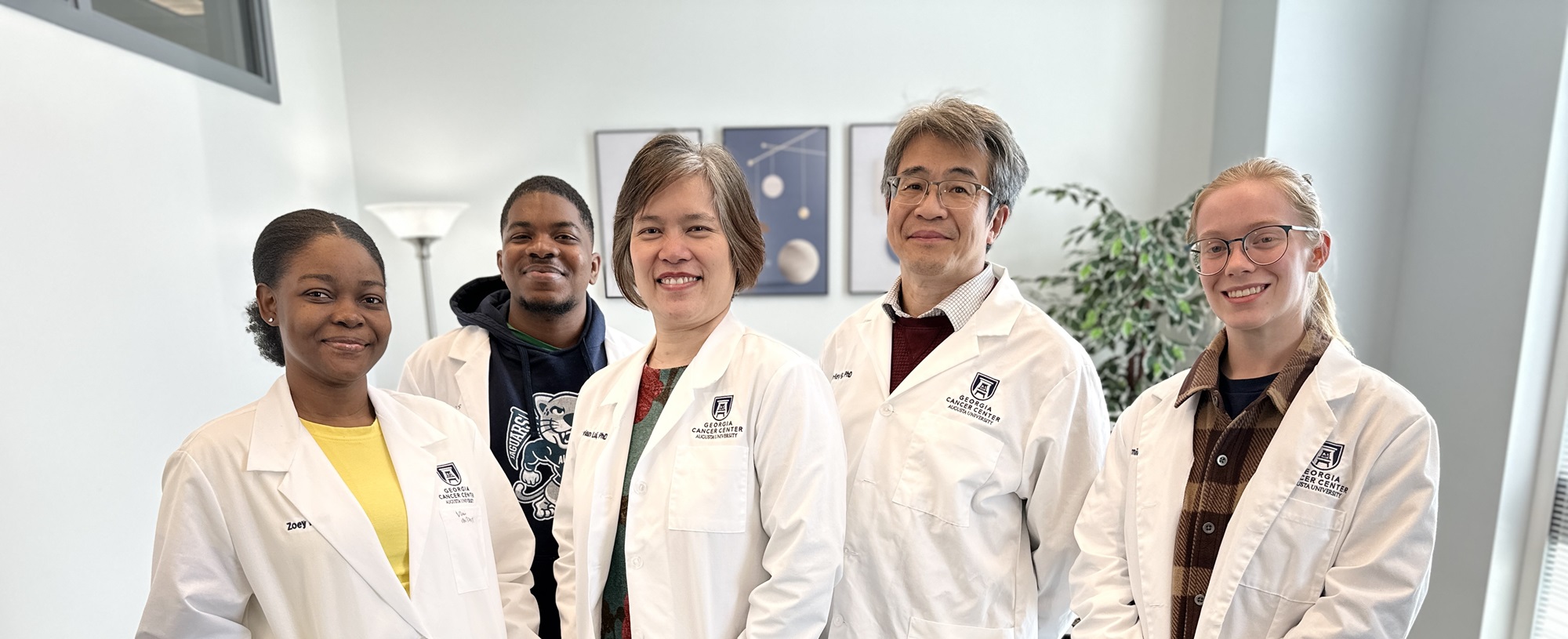
- Augusta University
- Georgia Cancer Center
- Research
- GCC Faculty Directory
- The Vivian Lui Lab
The Vivian Lui Lab
Vivian Lui, PhD
B.Sc. (First Class Hons in Biochemistry, Hong Kong)
Ph.D. (Hons in Molecular Pharmacology, Pittsburgh)
Associate Professor, GCC
Department, Biochemistry & Molecular Biology,
MCG, Augusta University

Research Summary Our Expertise Publications Research Team Lab Member AwardsNews & Media
Contact Us
The Vivian Lui Lab
Health Sciences Campus
GCC - M. Bert Storey Research Building
1410 Laney Walker Blvd., CN-3205B2
(706) 721-5047
Research Summary
We are a Precision Medicine Laboratory which focuses on discovering new precision therapies for head and neck cancer. Head and neck cancer is a very aggressive cancer affecting more than 0.83 million people worldwide annually. Advanced head and neck cancer remains to be incurable and lacks effective therapy.
We harness multi-omics data (genomics, transcriptomics, and proteomics) together with clinical data to identify new druggable targets, druggable germline and somatic events for this devastating cancer. We also investigate into the mechanisms of exceptional responders by functional genomics, trying to understand the nature of good drug responses. We develop patient-derived primary cultures, organoids, and patient-derived xenografts with full scale of genomic characterization to facilitate drug development in a Pharmacogenomic manner. Using immunogenomics, we identify genomic events that are associated with T cell and B cell activities in head and neck cancer.
Lab Recruitment Opportunities
We are interested in hiring a Research Assistant (with laboratory OR with Computer language experiences, including R) to join our Precision Medicine Lab! We love to take in medical students for research, especially those with ENT interests! We need young and energetic people like you to join our Precision Medicine workforce to develop new treatments for cancer patients! For those who are interested in these positions, please contact Dr. Vivian Lui today!
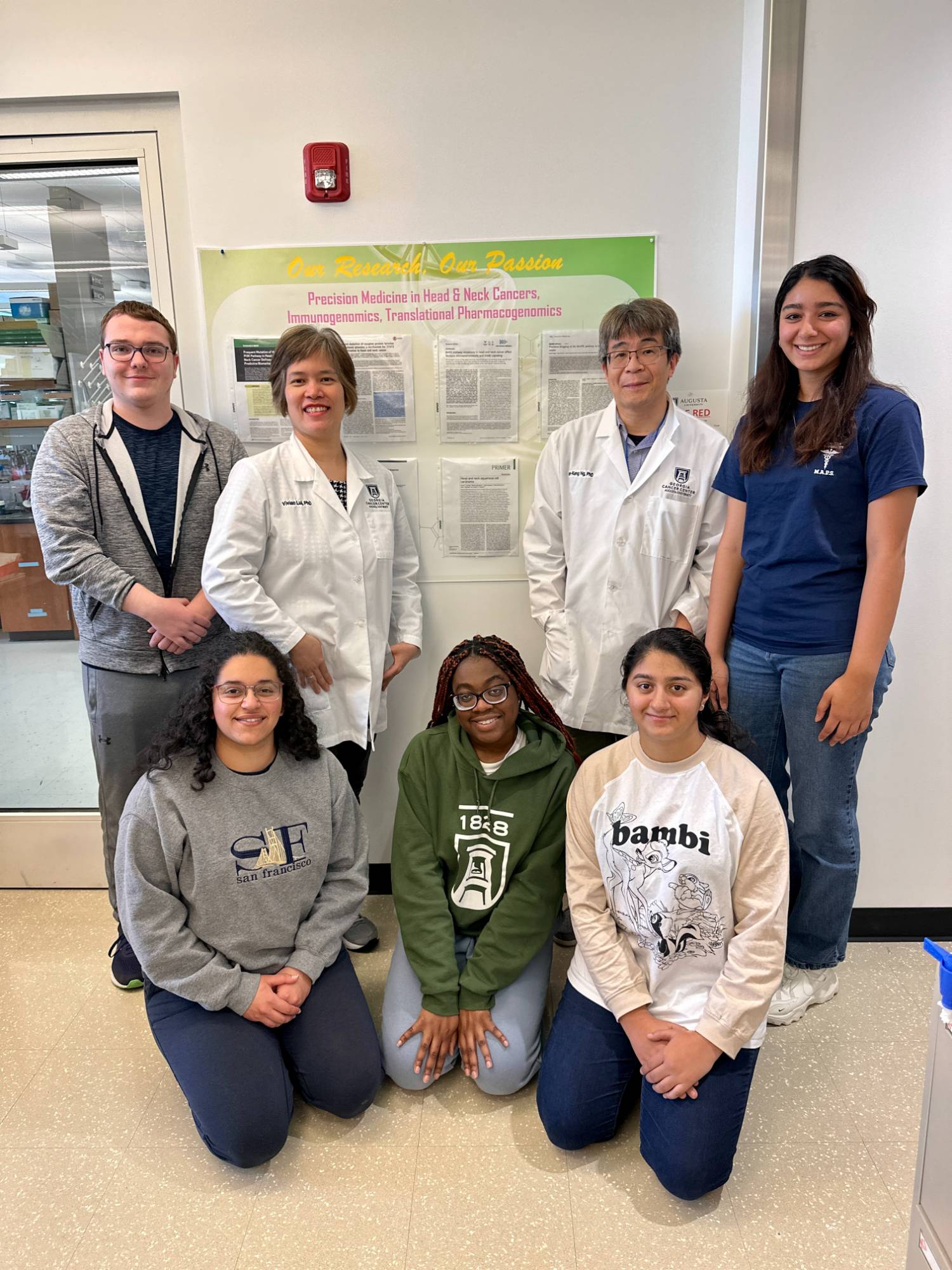
Our Expertise
Precision Medicine development targeting germline & somatic events
Using multi-omics, integrated with patient clinical outcome data, we identify novel cancer therapeutic targets in viral and non-viral-associated head and neck cancers. These include: PIK3CA, MAPK1, CYLD, TRAF3, PTPRT, RAC1, ALK, EGFR-AS1 mutational events, etc. We engage multiple experimental and bioinformatics approaches for drug target discovery.
Pharmacogenomics, Exceptional Responder Genomics, Immunogenomics
We performed next-generation sequencing (NGS) at the level of whole-genome and whole-exome, as well as targeted sequencing to examine the presence of drug-sensitizing mutational events in patient tumors and blood DNA. We employ both experimental and bioinformatic approaches to characterize druggable genomes in head and neck cancers. We also examine the signaling and biological mechanisms of exceptionally good drug responses in head and neck cancer patients or their tumors. For immunogenomics, we determine immuno-stimulating genomic events in head and neck cancers using pathway approaches, with concomitant immunogenomic validations in vivo using immunocompetent mice models. We also identify GPR18 as a potential and novel regulator of T cell-B-cell interactions in pan-cancers, including head and neck cancer.
Functional genomics
We engineer human-relevant genetic events into head and neck cancer models to determine their drug-sensitizing natures, both in vitro and in vivo. The effects of these mutational events on signaling perturbation, and pathway inhibitor sensitivity are investigated. Mechanisms of drug sensitivity by drug-sensitizing genetic events are further investigated both in vitro and in vivo. These findings can provide strong and reliable scientific evidence for precision medicine development in head and neck cancer.
Establishment of patient-derived cancer models for drug studies
Importantly, we specialize in developing various patient-derived xenograft models (PDXs) and patient-derived primary cultures (PDCs) with full genomic, transcriptomic, and proteomic characterization. These important patient-derived primary cancer cells, and PDX models allow large-scale drug screening to be performed in conjunction with their genomic profiles. This approach will enable the discovery of novel precision medicines for this devastating cancer.
Selected Publications
Research Team

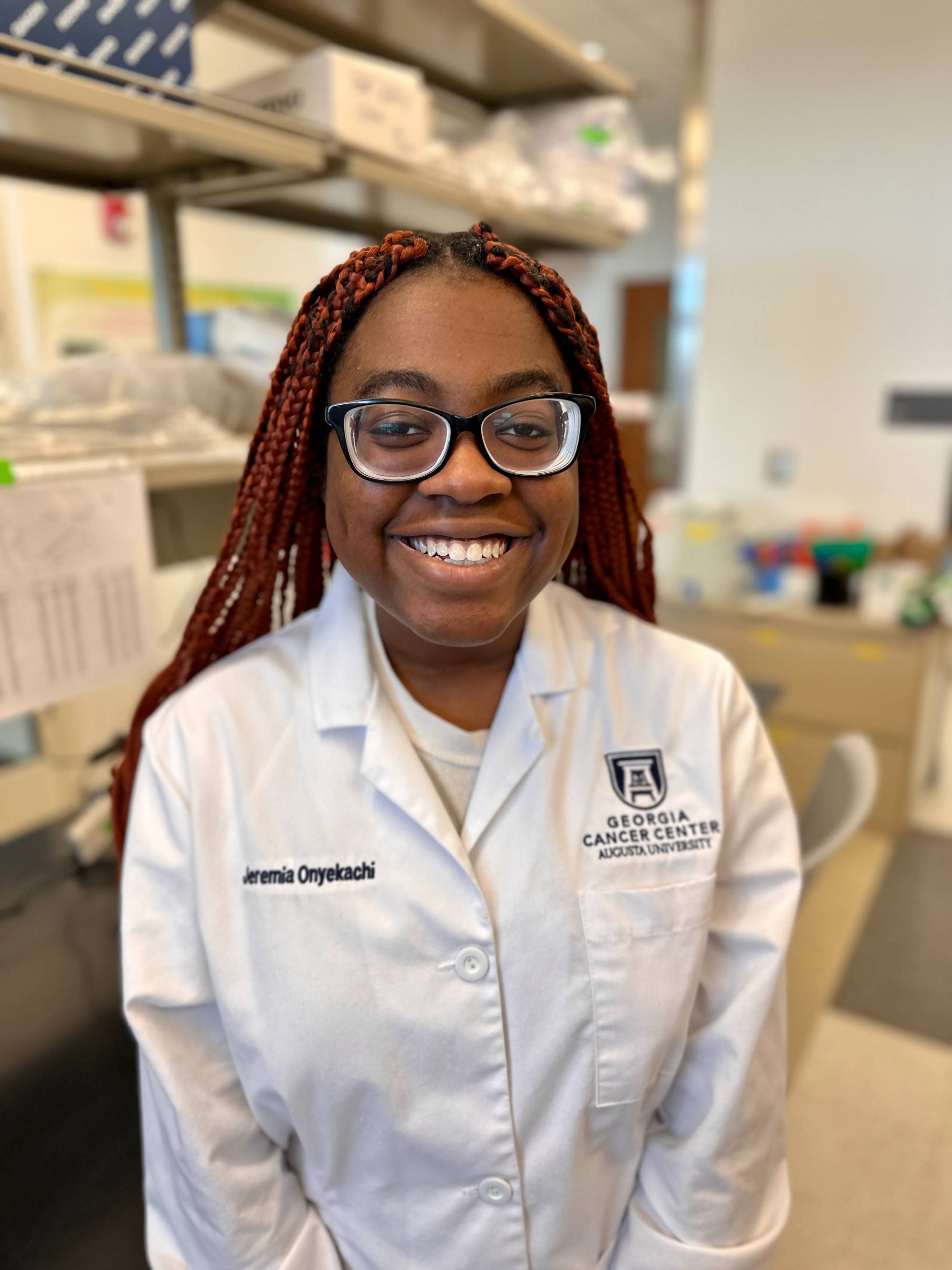
Lab Member Awards

Vivian Lui, PhD
- Faculty Development Funds, awarded by Faculty Inclusive Excellence Initiative (FIEI), Augusta University;
- Two UR2 grant awards by Faculty Inclusive Excellence Initiative (FIEI) and the Center for Undergraduate Research and Scholarship (CURS)
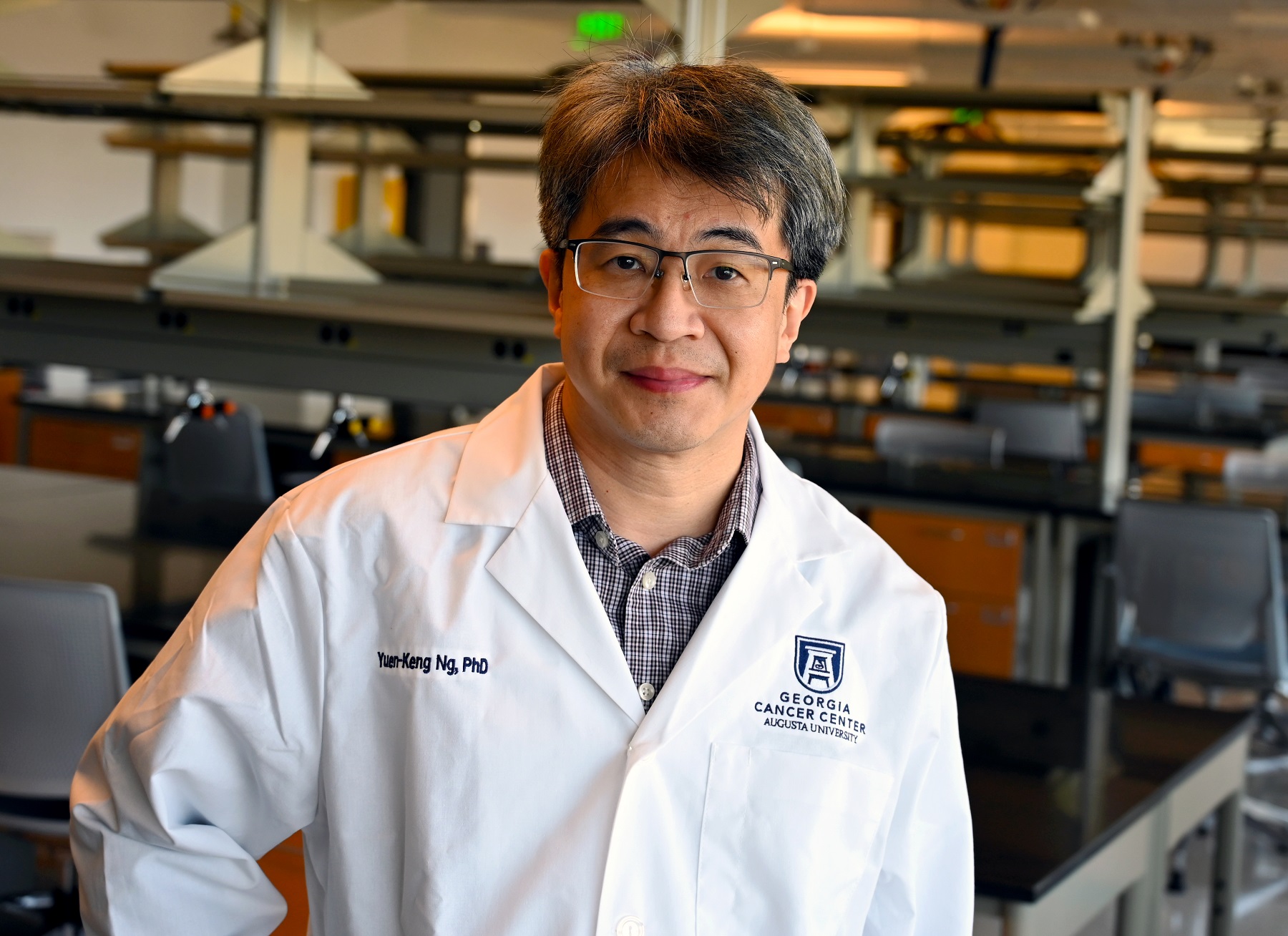
Yuen-Keng Ng, PhD
- Paceline award 2022
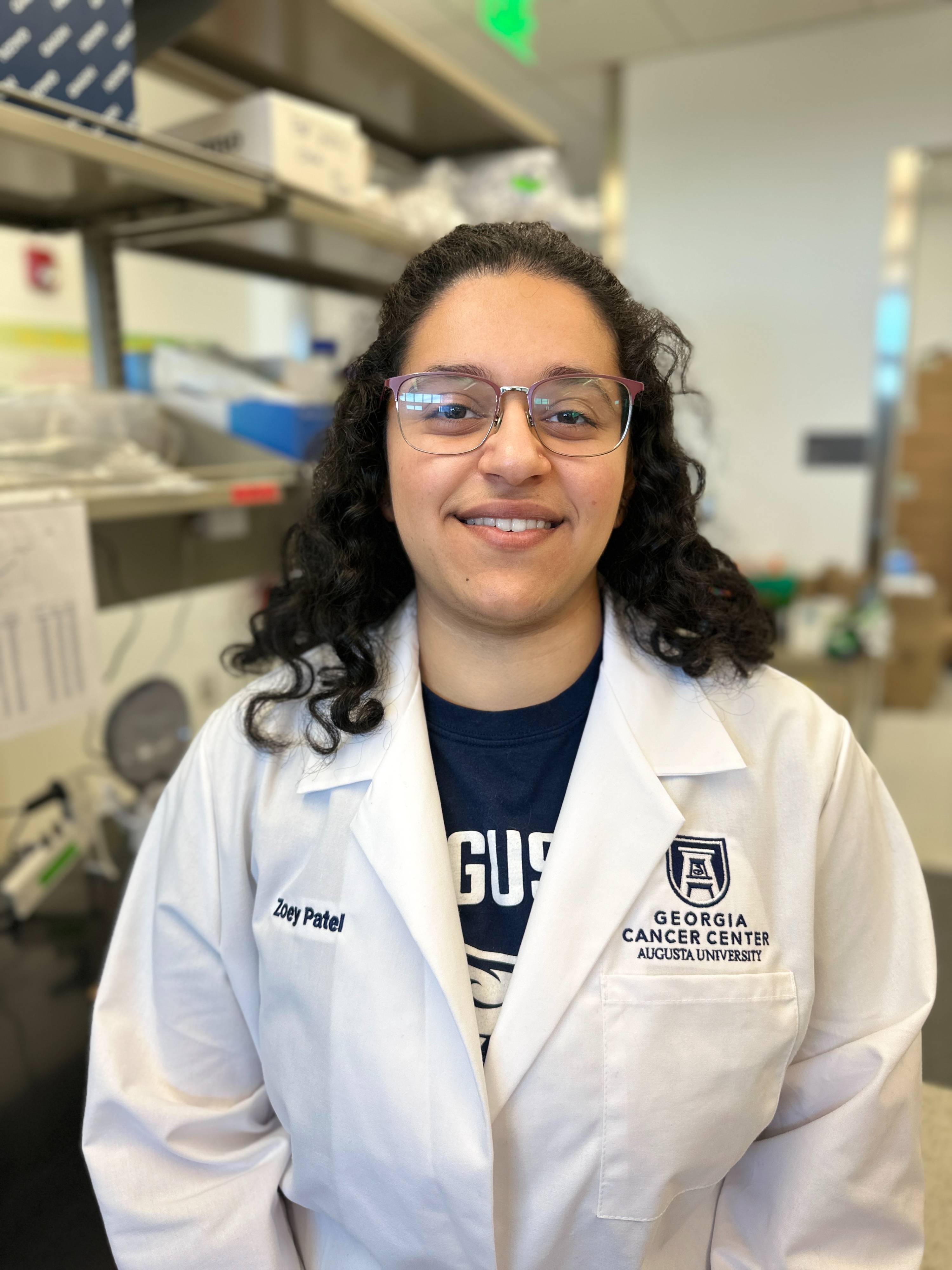
Zoey Patel
- CURS Fellowship for Enhancing Equity and Diversity, 2023
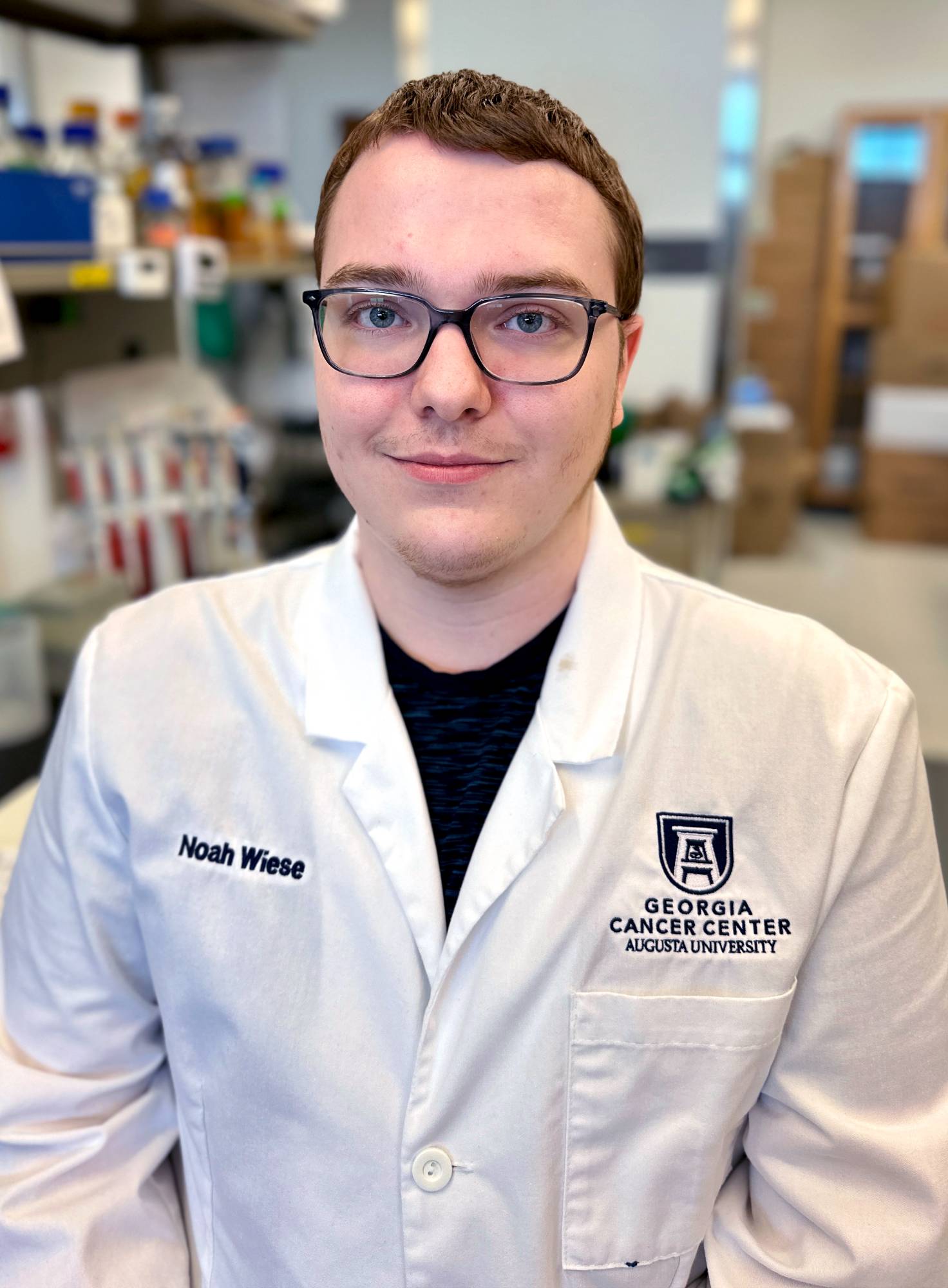
Noah Wiese
- NSF Travel Award (3rd annual Data Science workshop at Augusta University)

Jeremia Onyekachi
- NSF Travel Award (3rd annual Data Science workshop at Augusta University)
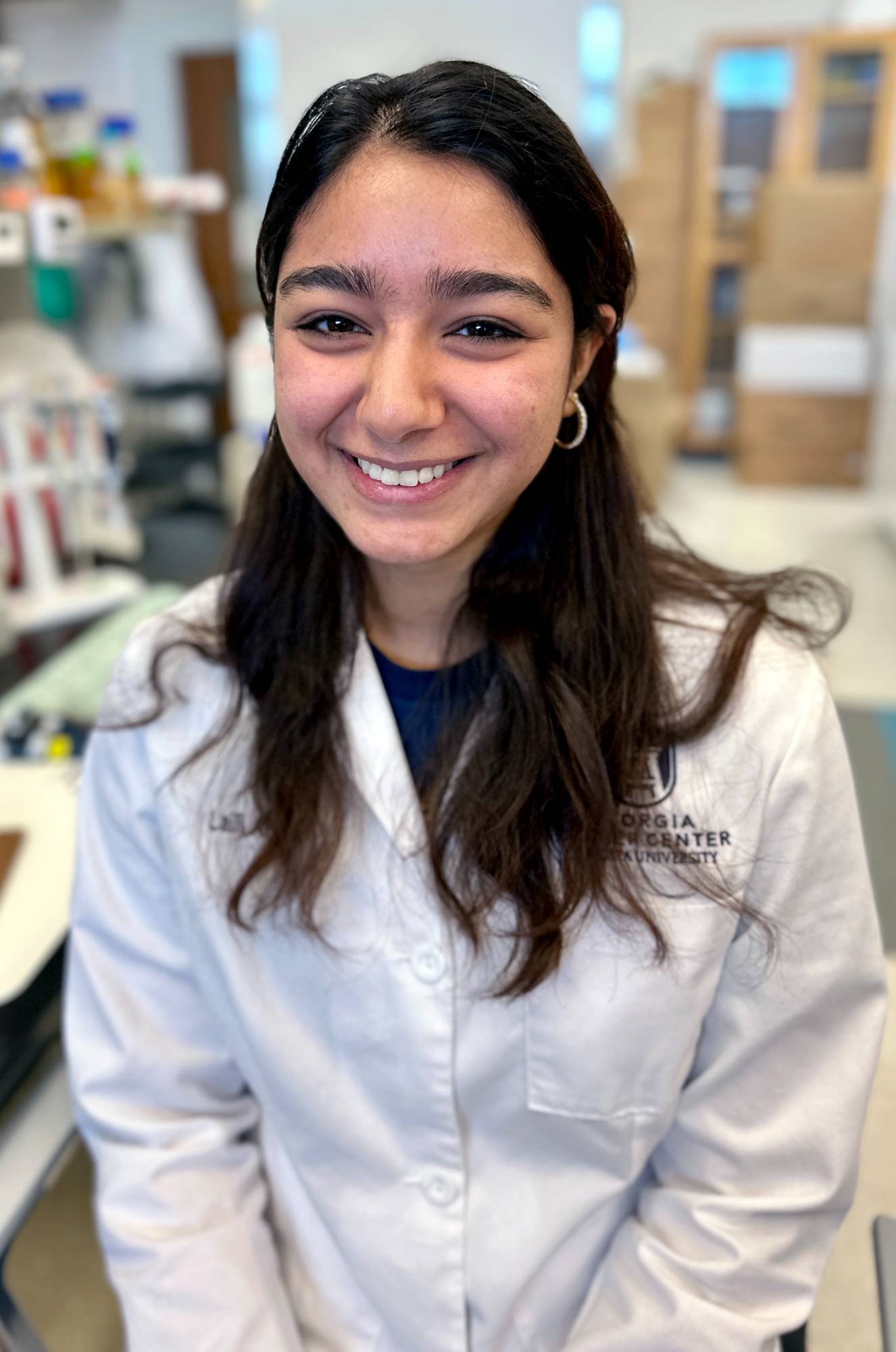
Laili Afzali
- NSF Travel Award (3rd annual Data Science workshop at Augusta University)
News & Media
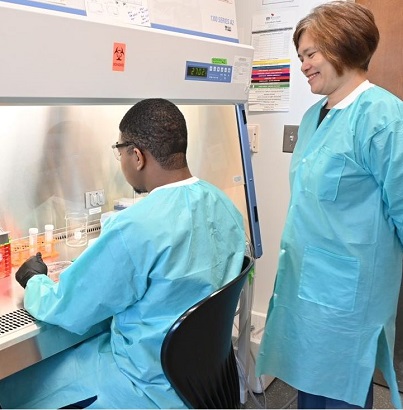
Georgia Cancer Center nurturing tomorrow’s biomedical scientists
CHRIS CURRY | JAGWire | August, 5, 2024
To bring careers in cancer research directly to high schools across the Central Savannah River Area and the state, the Georgia Cancer Center at Augusta University opened its doors to a select group of students for the second year in a row for its Summer Research Experience educational program. Participants in the program have unique opportunities to immerse themselves in multiple aspects of working as a cancer researcher.

News Release - Gene mutations that contribute to head and neck cancer also provide “precision” treatment targets (EurekAlert)
MEDICAL COLLEGE OF GEORGIA AT AUGUSTA UNIVERSITY| EurekAlert! | April 28, 2022
About one-fifth of often deadly head and neck cancers harbor genetic mutations in a pathway that is key to normal cell growth, and scientists report those mutations, which enable abnormal cancer cell growth, can also make the cancer vulnerable.
Reducing the Burden
The Georgia Cancer Center at Augusta University is dedicated to reducing the burden of cancer in Georgia and across the globe through superior care, innovation, and education. Through unprecedented expansion, the Georgia Cancer Center is providing access to more first-in-the-nation clinical trials, world-renowned experts and life-saving options.
Follow the Georgia Cancer Center